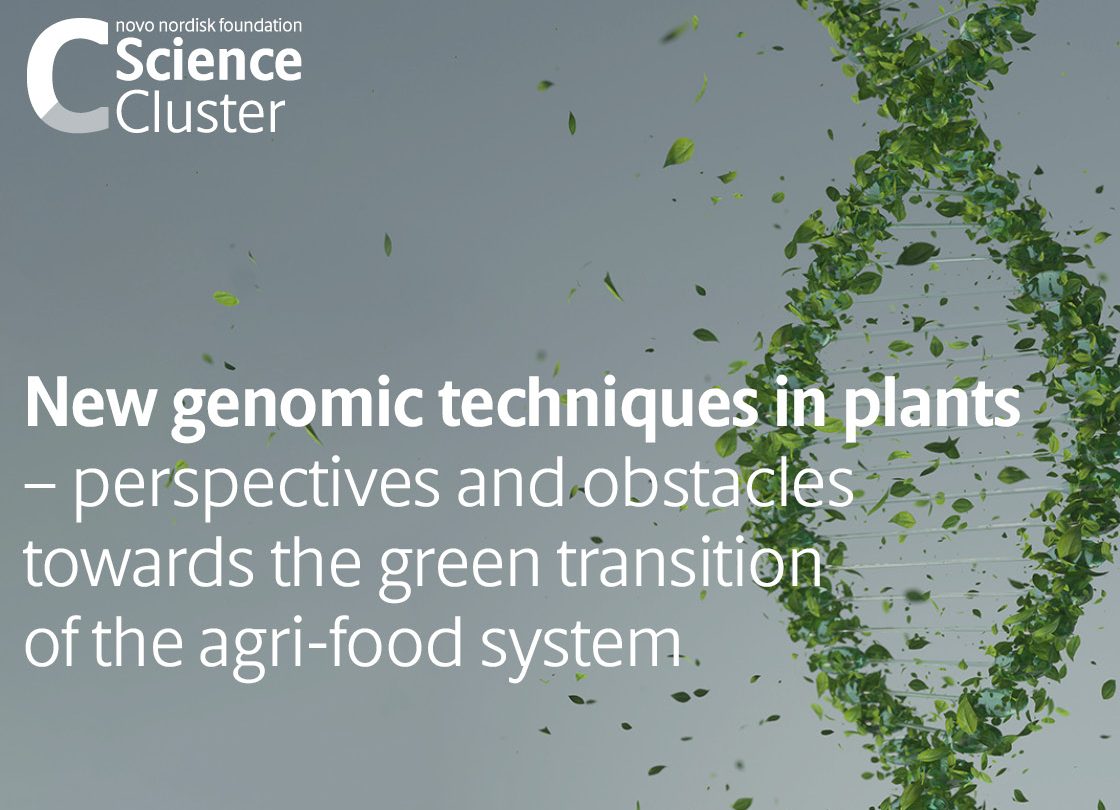New genomic techniques (NGT), including those based on CRISPR, represent a potentially efficient tool for rapidly developing more climate resistant and sustainable crops and contributing to the green transition of our agri-food system. This lecture will give some insights into NGTs, perspectives on the potential of NGTs for development of new adapted plants, and ethical considerations on their use, or not doing so.
Estimates suggest that by 2050, the world population will reach over 9 billion, putting immense pressure on our already strained food systems. This challenge is further exacerbated by climate change, increasing water scarcity, and the degradation of arable soil. To ensure nutritious and sufficient food for all, we must address this challenge by finding and implementing sustainable solutions to increase food production while remaining within the planetary boundaries.
One of such solutions may be new genomic techniques (NGT) – including those based on CRISPR – a potentially efficient tool for rapidly developing more climate resistant and sustainable crops with bigger yields, contributing to the green transition of our agri-food system.
Although NGT based plants represent just one among many tools for the needed transformation, omitting to use this tool may not be an option. The European Commission is soon expected to propose an update to the current framework regulating plants produced by NGTs. Specifically, plants genetically modified in a way that makes them undiscernible from plants bred through conventional methods are in scope. The acceptance of the proposed update by the different EU member states is not a given in light of the strong GMO debates of the past. However, the crises we are currently facing, including climate, war in Europe, and food security, leave us to ask whether we can allow for any potential solution to be left out of the toolbox.
This lecture will give some insights into NGTs, perspectives on the potential of NGTs for development of new adapted plants, and ethical considerations on their use, or not doing so.
The lecture is free and open for all interested.
Speakers
- Christian Gamborg, Member of The Danish Council of Ethics & Associate Professor, Department of Food and Resource Economics (IFRO), University of Copenhagen
- Svend Christensen, Professor, Head of Department of Plant and Environmental Sciences, University of Copenhagen
- Gerhard Deneken, Director, TystofteFoundation
Programme
3:45 pm Arrival and Registration
4:00 pm Welcome by the Novo Nordisk Foundation w/ Claus Felby, Senior Vice President at the Novo Nordisk Foundation
4:05 pm Christian Gamborg, Member of The Danish Council of Ethics & Associate Professor, Department of Food and Resource Economics (IFRO), University of Copenhagen
4:30 pm Svend Christensen, Professor, Head of Department of Plant and Environmental Sciences, University of Copenhagen.
5:00 pm Gerhard Deneken, Director, TystofteFoundation
5:25 pm Concluding remarks
5:30 pm Networking with drinks and snacks for physical participants
6:30 pm Thank you for today!








